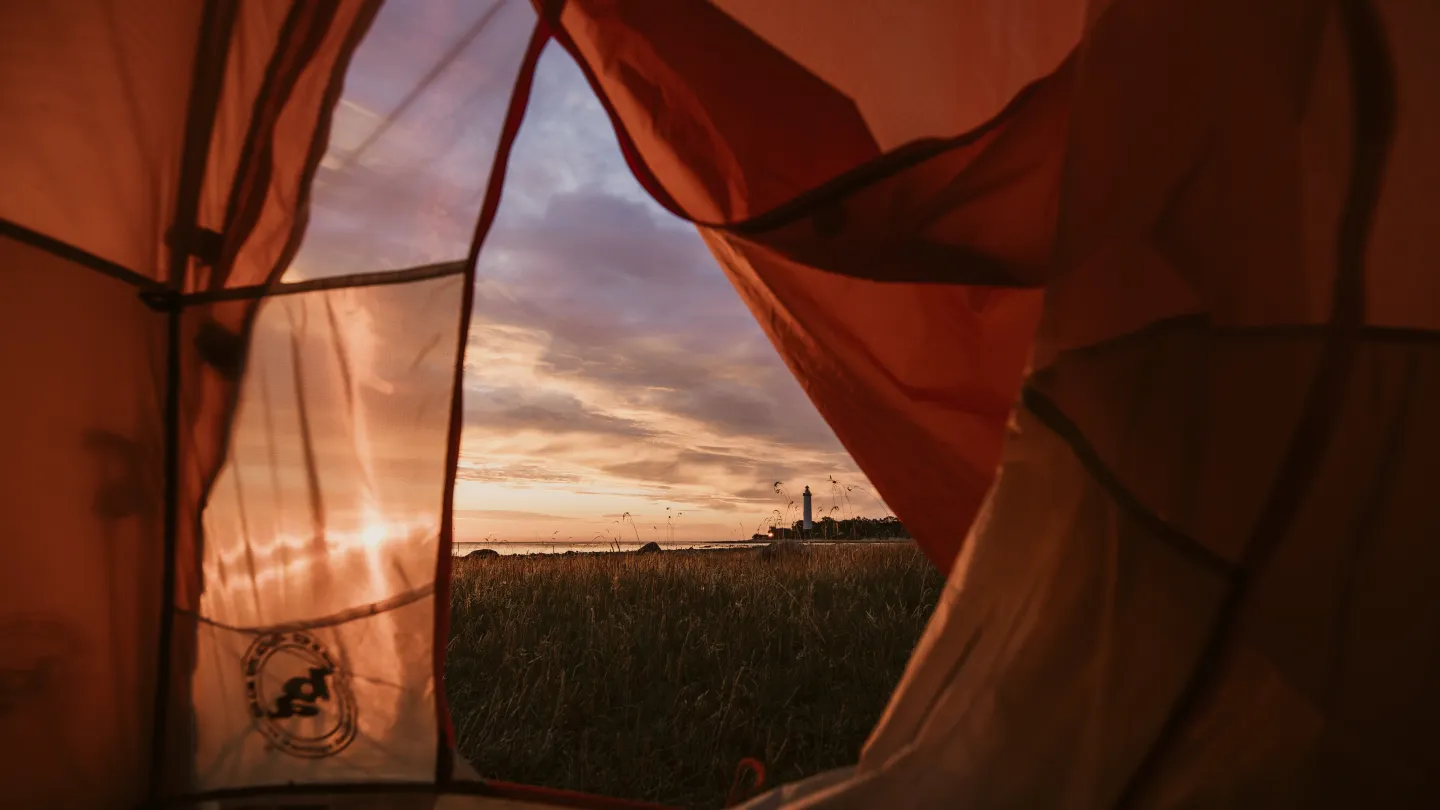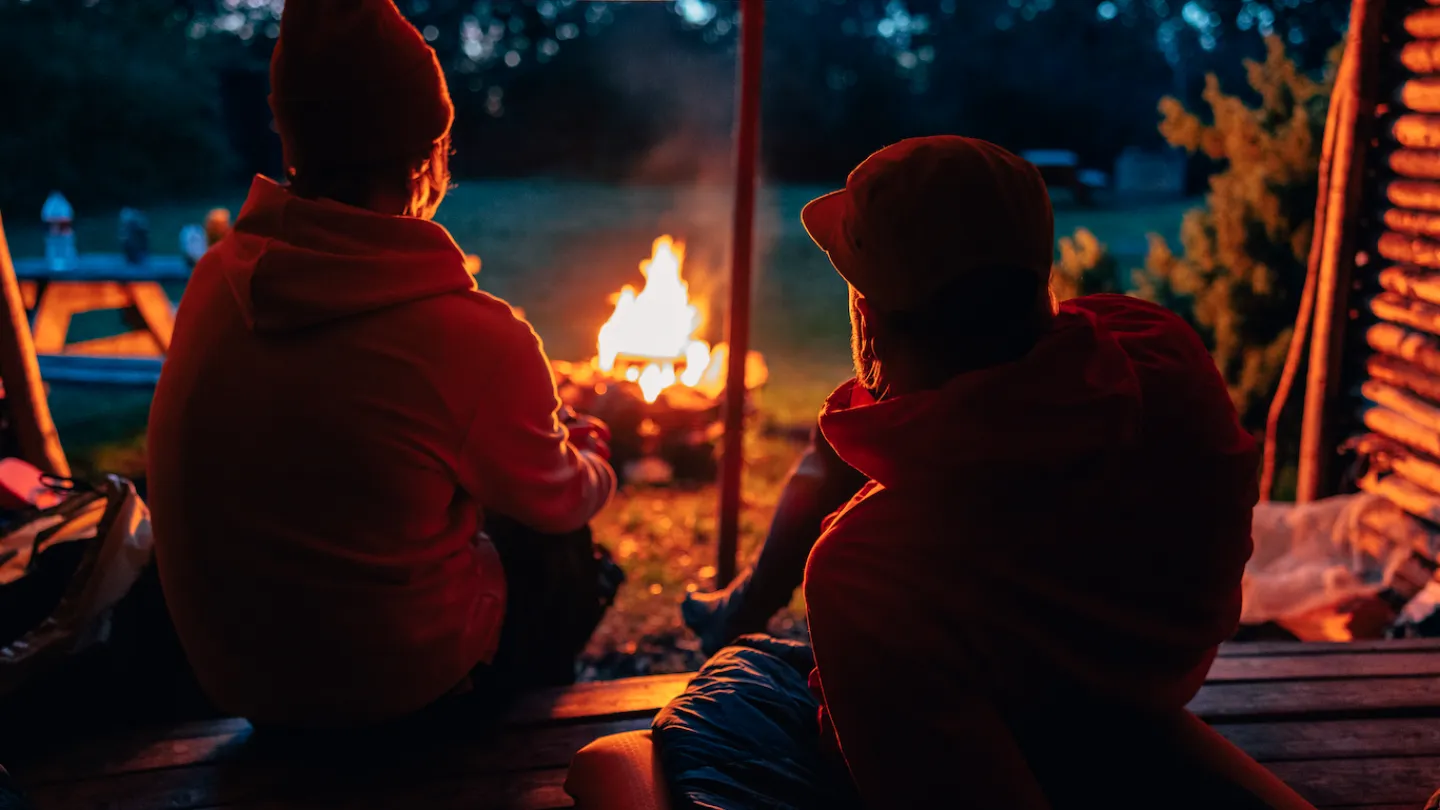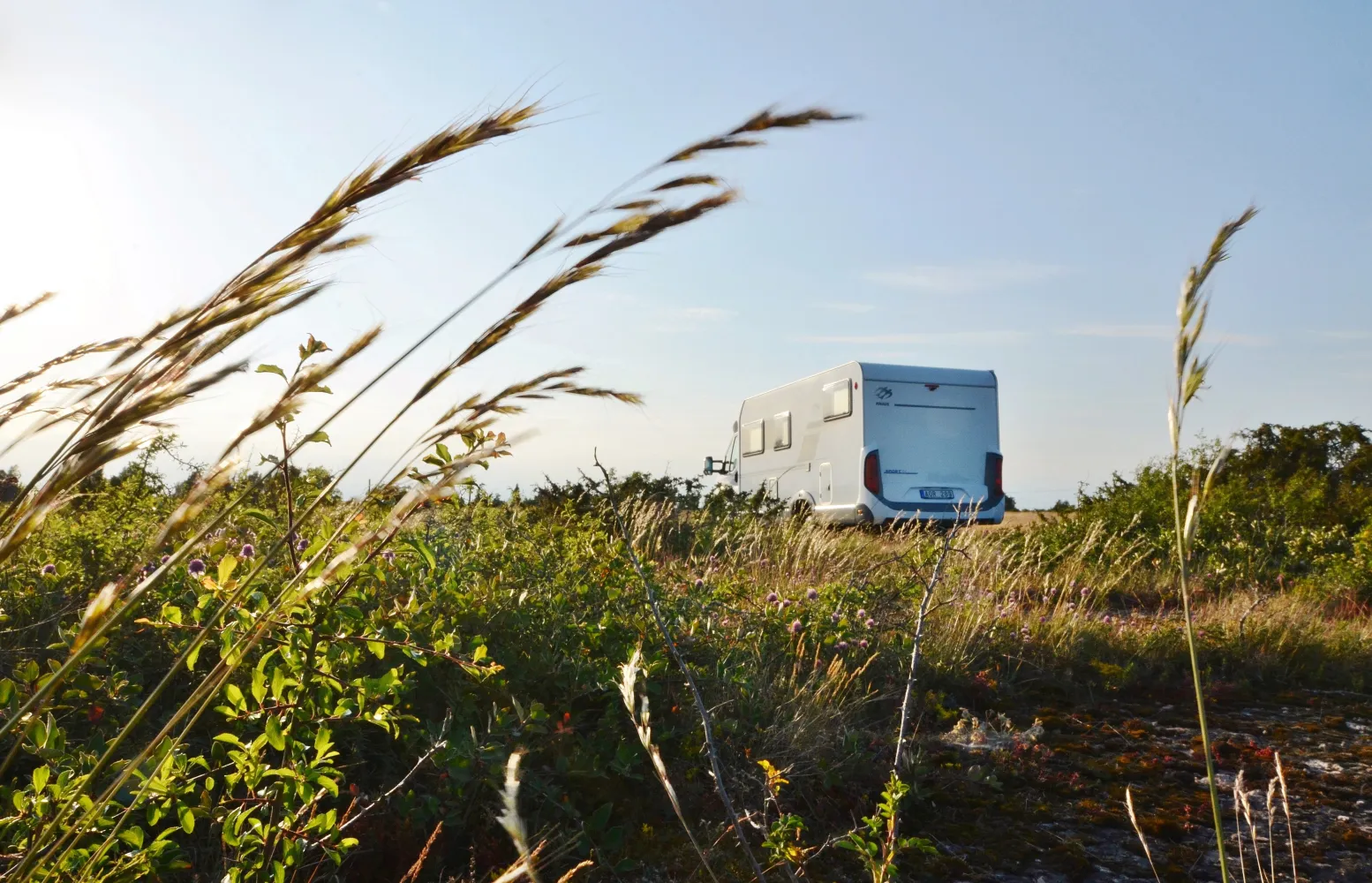camping
You can camp for a few days in the countryside, but choose a site that is not close to residential buildings. It is also important not to disturb the landowner or damage nature. Choose to pitch your tent on hardy land and not on grazing land, agricultural land in use or in a plantation. The tent site should also not be close to residential buildings.
landowner's authorisation for multiple tents
Camping with two or three tents for a single day is part of the right of public access. However, if you are camping in large groups with many tents, you need to ask the landowner for permission. This increases the risk of ground damage and sanitary problems.
special rules apply in national parks and nature reserves
Generally speaking, camping is only allowed in designated areas. There may also be a ban on camping in the whole area.
Notice boards in the area show what applies.
do not leave rubbish or food leftovers
It is always important not to have food out, to clean up after yourself and not to leave rubbish or food leftovers in nature. This is particularly important now. A disease that affects wild boar and domestic pigs, African swine fever, is not found in Sweden but further down in Europe. The virus that causes the disease is highly resistant. It survives for a long time in the environment and in meat and meat products from infected animals, even if the meat has been frozen. The disease is not dangerous for humans but is highly contagious for wild boars and pigs. It is therefore important not to leave behind, for example, a ham or sausage sandwich that nobody ate.


